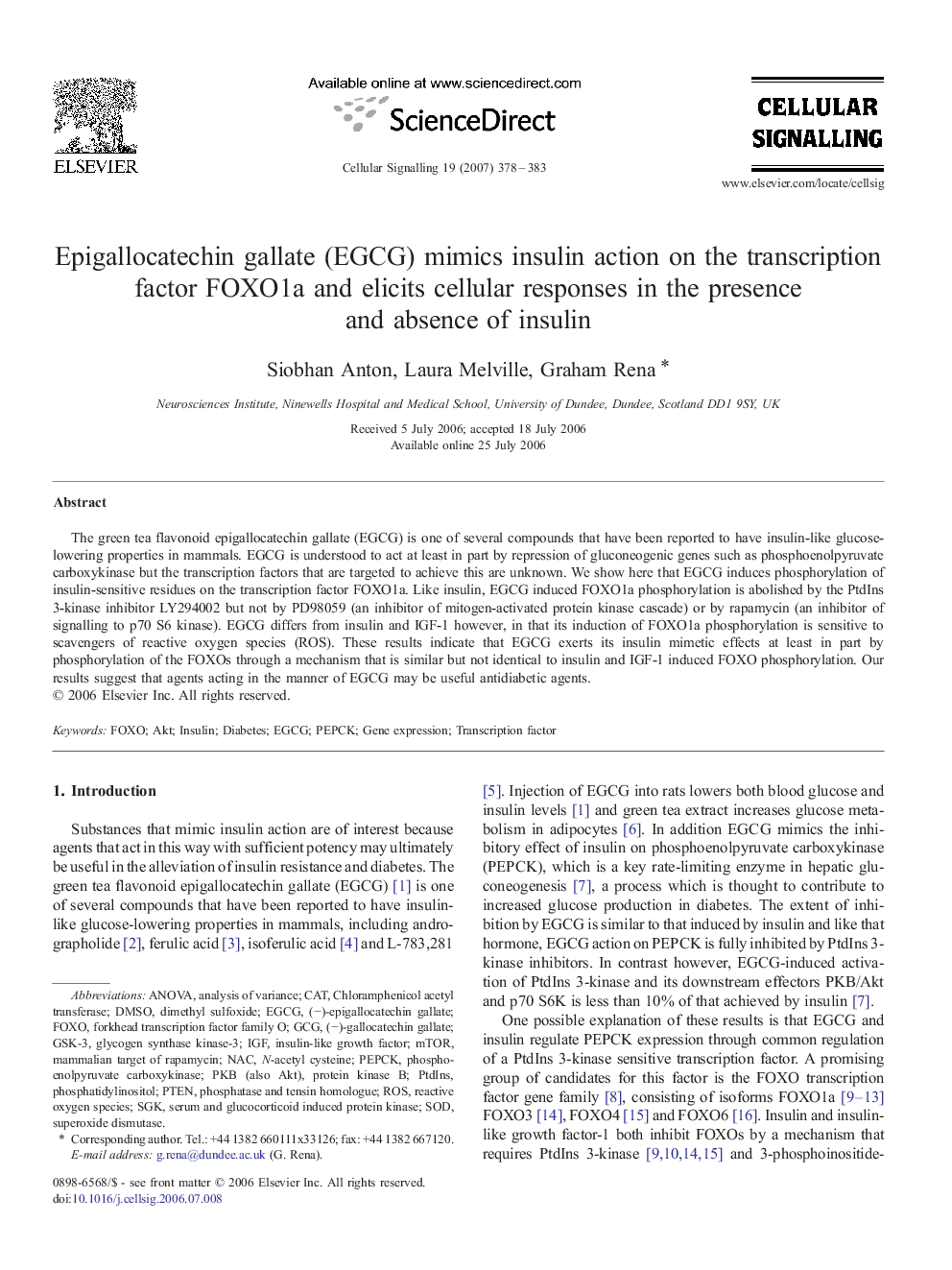| Article ID | Journal | Published Year | Pages | File Type |
|---|---|---|---|---|
| 1964553 | Cellular Signalling | 2007 | 6 Pages |
The green tea flavonoid epigallocatechin gallate (EGCG) is one of several compounds that have been reported to have insulin-like glucose-lowering properties in mammals. EGCG is understood to act at least in part by repression of gluconeogenic genes such as phosphoenolpyruvate carboxykinase but the transcription factors that are targeted to achieve this are unknown. We show here that EGCG induces phosphorylation of insulin-sensitive residues on the transcription factor FOXO1a. Like insulin, EGCG induced FOXO1a phosphorylation is abolished by the PtdIns 3-kinase inhibitor LY294002 but not by PD98059 (an inhibitor of mitogen-activated protein kinase cascade) or by rapamycin (an inhibitor of signalling to p70 S6 kinase). EGCG differs from insulin and IGF-1 however, in that its induction of FOXO1a phosphorylation is sensitive to scavengers of reactive oxygen species (ROS). These results indicate that EGCG exerts its insulin mimetic effects at least in part by phosphorylation of the FOXOs through a mechanism that is similar but not identical to insulin and IGF-1 induced FOXO phosphorylation. Our results suggest that agents acting in the manner of EGCG may be useful antidiabetic agents.
